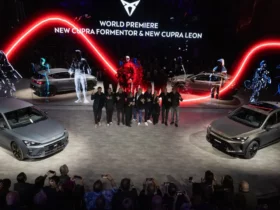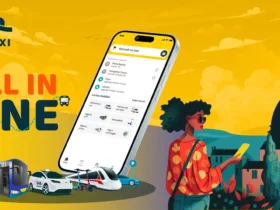The conscious choice of Volvo Cars switching to renewable fuels for shipping. Thus, reducing the emissions Of 84% fossil CO2.
 Volvo Cars switches to renewable fuels for shipping, according to the press office
Volvo Cars switches to renewable fuels for shipping, according to the press office
Volvo Cars, conscious sea travel
Every year, tens of thousands of containers of production material destined for the factories Volvo Cars they cross the world’s oceans aboard cargo ships.
From now on, most of these sea voyages will be on renewable fuel. Instead of traditional fossil fuel.
Mission: reduce CO2 emissions
Volvo is there prima car manufacturer worldwide to announce such a change. The operation will allow us to immediately reduce the fossil CO2 emissions.
These arising from intercontinental shipping of 55,000 tons in one year. Thanks to the renewable fuel, the CO2 emissions are reduced by at least 84%.
Buy with REVOLUT, your online account directly from your home. Find out more.
Compared to the use of fossil fuel. The reduction is equivalent to the CO2 emissions of a fully loaded truck circling the equator approximately 1,200 times. The fuel used is made from fatty acid methyl esters (FAME). And it comes from renewable and sustainable sources, mainly from waste cooking oils. No raw materials related to palm oil or palm oil production are used.
The fuel obtained from renewable sources
The fuel from renewable sources will be used for the sea transport of production material destined for plants in Europe and the Americas, as well as for all shipments of spare parts made globally by sea.
“Il renewable fuel is not the ultimate solution to eliminating CO2 emissions from global shipping“, he claims Javier Varela, our COO and Deputy CEO. “However, this initiative demonstrates that we can already take action now by adopting solutions which make it possible to obtain significant results while waiting for effective long-term technological alternatives”.
“We do not view this initiative as a competitive advantage“, adds Javier. “On the contrary, our hope is to inspire other automakers to take action as well, in order to increase the demand for carbon-efficient ocean transportation and to establish renewable fuels as a viable medium-term solution. term. We all have a responsibility to act.”
They have worked on this project together with Maersk, Kuehne+Nagel and DB Schenker. From 1 June 2023, these logistics service providers will switch to fuel from renewable sources to cover the equivalent energy needs of all container transports performed for Volvo Cars.
Volvo Cars chooses renewable fuels for maritime transport
When renewable fuel is not available for a particular shipment, the logistics partner uses it for another route of another customer, thus ensuring that the overall reduction in fossil fuel use is in line with the actual use of the vessels container ship. The methodology applied, known as mass balance, is regularly audited by third parties. The renewable fuel itself is certified and not produced at the expense of food crops. It is therefore sustainable in accordance with the EU Renewable Energy Directive.
“We are continually evaluating opportunities for sustainability in all aspects of our supply chain and across all areas of our business,” continues Javier Varela. “Our list of initiatives continues to grow as we work towards our goal of becoming a climate-neutral company by 2040.”
It aims to reduce the lifecycle carbon footprint of each car by 40% between 2018 and 2025resulting in a 25% reduction in emissions from operational activities, including logistics, and efforts to achieve climate neutral production by 2025. Both of these milestones are important steps towards achieving climate neutrality goals .
















Leave a Reply
View Comments